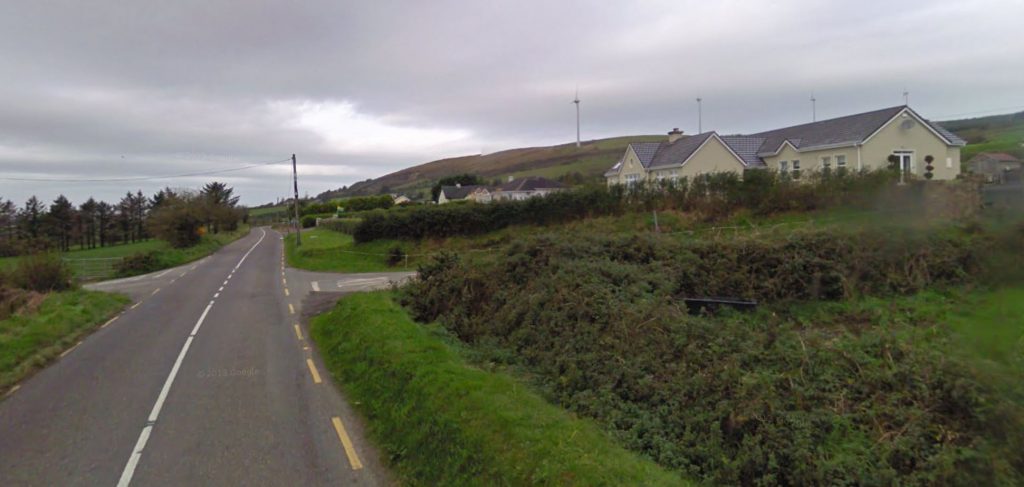We welcomed Erika Hanna (Bristol) for our second seminar of the year – and the first to be co-hosted with the Modern Irish History research group. Erika gave an engrossing paper, which explored the local and the global through an unsolved murder of mid-20th century Ireland. Robbie Johnston sends this report.

On the 22 November 1958, the body of Mossie Moore was discovered in a stream a short distance from his home on the outskirts of the village of Reamore, county Kerry. The 46-year-old farmer had been strangled to death. Erika used the events which took place in this field over six decades ago to open up a wide-ranging discussion on themes relating to power, landscape, place, and economics at a crucial juncture in Irish history.
Erika also drew on a rich local storytelling tradition to recount the last day of Moore’s life. At the outset of the paper, Erika observed that, although literary forms of storytelling and poetry may not always be considered ‘scholarly’, they are nonetheless hugely important in how audiences beyond academia understand and discuss historical events.
At first glance, an isolated upland parish in county Kerry may seem an unlikely setting for the study of global history. But, as Erika pointed out, the livelihoods of subsistence farmers in this area were not only determined by economic policies in Ireland itself, but were also intimately tied to global economic developments. Crucially, by focusing her talk on the lives of upland hill farmers like Moore, Erika focused our attention on what globalization meant for those who did not travel widely or even leave the house in which they were born; in other words, those who have often been neglected in the writing of global histories.
The dairy farmers of Reamore were at the mercy of dramatic shifts in worldwide prices. The precipitous decline in the price of butter, which began in 1957, and persisted well into 1958, wrought a devastating impact on small holder dairy farmers. This fall was driven principally by a glut in supply following rapidly increased outputs in Australia, New Zealand, as well as Britain. Compounding their economic hardship, the fall in the price of cheese, as well as the decline in chocolate consumption in Britain, prevented these farmers from supplementing or diversifying their income from butter-making.
Significantly, on the 12th of November 1958, the Irish Government published its renowned White Paper on Economic Expansion. The seminal document has been heralded as a critical moment when Ireland began to stimulate economic growth by attracting foreign capital, benefiting in particular from the financial investment of the United States.
While the White Paper is often celebrated as a key step towards modernising Ireland’s economy, in many ways, these changes and the removal of tariffs left many farmers even more exposed to global market forces. These pronouncements were greeted with scepticism by many locals in rural communities such as Reamore, already resentful of the high burden of taxation. While the economic plan represented a shift towards economic liberalisation, there was little in the way of support for dairy farmers, with the Irish state concentrating its assistance on beef farming instead.
Erika interwove these wider economic developments with a captivating story of the circumstances in the time leading up to Moore’s death, and its repercussions in the local community. Although the murder remains unsolved to this day, it was widely believed among locals that a dispute over bog land was at the heart of the matter.

In his comment, Enda Delaney (Edinburgh) remarked that the storytelling form of the paper reminded him of the fine work of historian Richard White, Remembering Ahanagran: A History of Stories, which narrated a dialogue between history and memory with an international perspective. Enda also suggested a number of ways in which Erika could further examine how the lives of Moore and the rural community of Reamore were bound up with the global.
By adopting a storytelling form, Erika’s paper made a compelling case for historians to step outside their comfort zone and use imaginative approaches to enliven and enrich their work.
Robbie Johnston is a PhD student in History. His primary research interests lie in the twentieth-century politics of Scotland and Britain. He is currently working on a thesis which explores the development of Scottish Home Rule and Nationalism from the 1970s to the 1990s. He is a CSMCH steering committee member.